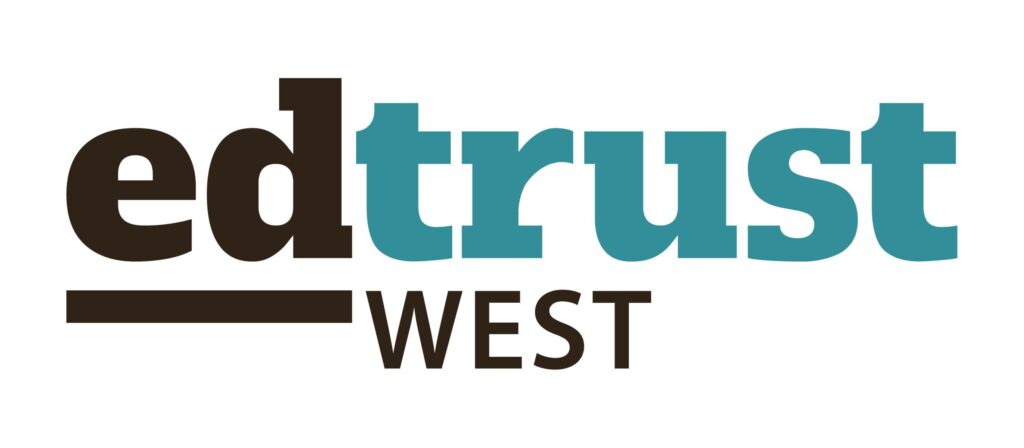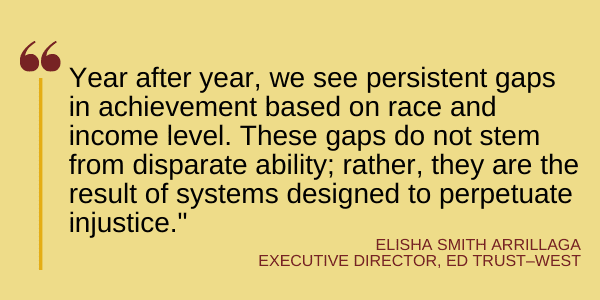Dr. Elisha Smith Arrillaga, Executive Director of The EdTrust-West, today issued the following statement in response to the release of 2019 results of the National Assessment of Educational Progress, known as The Nation’s Report Card:
Report cards are not just a summary of past progress; they’re a roadmap for future improvement, and that’s exactly how California should use today’s results on “The Nation’s Report Card.” While California has shown some improvement in Mathematics and Reading in the past two decades, the hard truth is that we need to be moving much faster toward educational justice. Scores for most student groups flatlined across grades and subjects in 2019, and 8th grade reading scores decreased for Black, Latinx, and Native American students since 2017.
Taken together, the data tell a story: our students can achieve anything when we give them the support and opportunities they deserve. Year after year, we see persistent gaps in achievement based on race and income level. These gaps do not stem from disparate ability; rather, they are the result of systems designed to perpetuate injustice. We have the tools to dismantle those systems, but it’s on us to do it and to do it quickly.
Educators, policymakers, and advocates across the state should commit today to dramatically accelerating progress in four key areas that evidence shows will help support low-income students and students of color:
- Fair funding. It’s simple: we should spend the most money on the students who need the most support. Spending should be transparent, targeted at improving student experiences and outcomes, and monitored for progress toward our goals.
- Data and accountability. We need to know how students and groups of students are doing so that we can give them what they need to thrive, and we need to identify and support schools that are struggling to support all groups of their students.
- Access to coursework. Every student should have access to the courses they need to succeed in high school, college, and a career. We need to identify and remove barriers to inequitable course access and support underserved students to succeed in those courses.
- Strong and diverse educators. Students do better when they have great teachers who look like them. We should target resources to the schools and districts that struggle the most to attract strong, diverse educators and use data to measure our progress in this area.
While these key areas and the resources provided illuminate a path forward, state and local leaders must commit to implementing and expanding these practices to accelerate the path toward educational justice.


